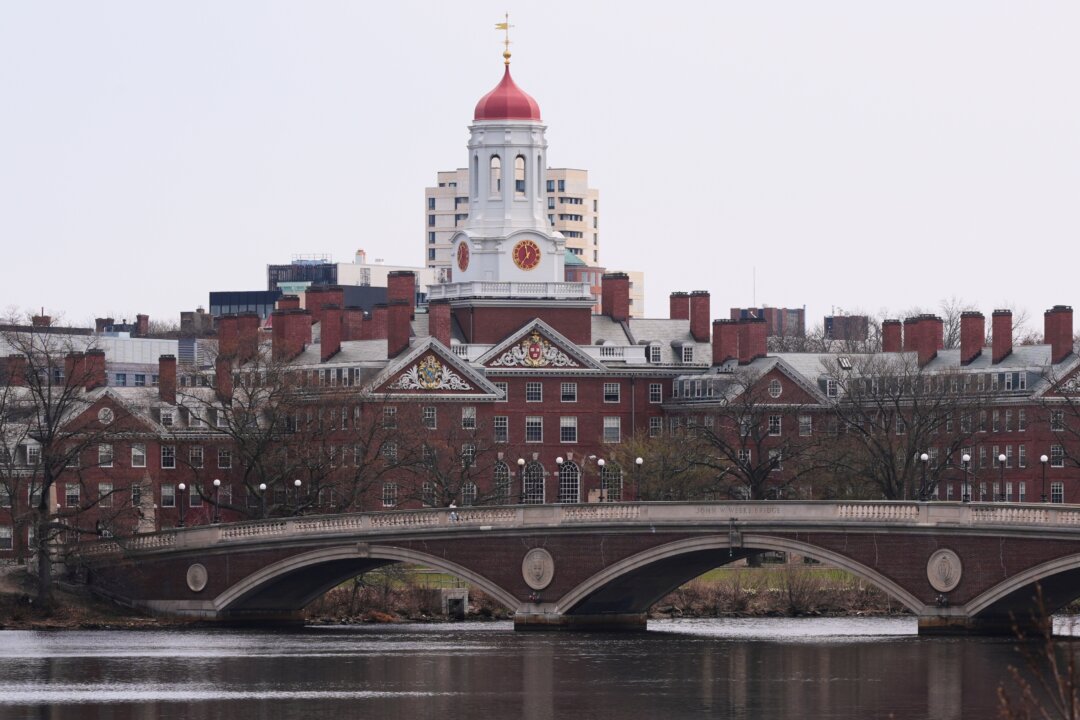The lawsuit was filed as the administration plans to withhold another $1 billion from the university.
Harvard University has sued the Trump administration, asking a federal court to unfreeze billions of dollars in federal contracts and grants that the administration is withholding because of what officials say is the Ivy League school’s refusal to end diversity, equity, and inclusion (DEI) requirements and combat campus anti-Semitism.
“The consequences of the government’s overreach will be severe and long-lasting,” Harvard President Alan Garber said in a statement on April 21 announcing the lawsuit. “Research that the government has put in jeopardy includes efforts to improve the prospects of children who survive cancer, to understand at the molecular level how cancer spreads throughout the body, to predict the spread of infectious disease outbreaks, and to ease the pain of soldiers wounded on the battlefield.”
The lawsuit comes hours after a report that President Donald Trump is planning to withhold another $1 billion from Harvard University, bringing the total withheld in this ongoing dispute with the Ivy League school to $3.2 billion. The Wall Street Journal reported the development, which a White House official confirmed to The Epoch Times.
The $1 billion was earmarked for medical research, as was the $2.26 billion frozen last week. Trump has also threatened to revoke Harvard’s tax-exempt status.
The White House official did not detail the reason for the additional cuts.
Harvard’s lawsuit notes, “the tradeoff put to Harvard and other universities is clear: Allow the Government to micromanage your academic institution or jeopardize the institution’s ability to pursue medical breakthroughs, scientific discoveries, and innovative solutions.”
The lawsuit also notes that Harvard has taken steps to combat campus anti-Semitism in the past year. It states that the Trump administration cannot connect Harvard’s medical research to any events of anti-Semitism.
The complaint said the loss of billions of dollars in research funding would devastate Harvard and other U.S. health care and research institutions.
“If Harvard continues to replace the frozen funding from its own resources, it will be forced to reduce the number of graduate students it admits and the number of faculty and research staff it pays to conduct research. It will be unable to continue procuring and maintaining cutting-edge supplies, equipment, and facilities for research,” it said.
The funding freeze will also damage Harvard’s reputation as a premier research institution, the complaint said, damaging its relationship with other institutions, and its ability to recruit talent and secure funding.
The lawsuit noted that Harvard is one of Massachusetts’ largest employers, and said the federal funding cut would produce a ripple effect of economic harm at local, state, and national levels.
“As a recipient of federal research funding, Harvard issues subawards to institutions across America, including St. Jude Children’s Research Hospital, the University of Alabama, and Baylor College of Medicine.”
This conflict began with executive orders regarding DEI programs in higher education and campus anti-Semitism. Federal agencies began investigating the wealthiest universities shortly after Trump took office, targeting reports of harassment against Jewish students on Harvard’s campus in the wake of Hamas’s terrorist attack on Israel on Oct. 7, 2023. The attack triggered the Gaza war and a wave of pro-Palestinian protests on American campuses, where some demonstrators have been accused of vandalism and anti-Semitic conduct.
Earlier this month, the Department of Education, the Department of Health and Human Services, and the General Services Administration explained conditions Harvard would need to meet to avoid losing about $9 million in federal funding.
That list included a mask ban for campus protesters, the end of DEI programs and racial preferences in hiring and student admissions, reforms to biased programs that fuel anti-Semitism, an overhaul of the current student disciplinary system, and cooperation with the Department of Homeland Security.
On April 14, Harvard University President Alan Garber rejected those demands, telling the campus community that these federal actions “exceed its authority and infringe on both the university’s independence and its constitutional rights.”
That prompted a same-day response from the three federal agencies, organized as an anti-Semitism task force, announcing the $2.2 billion funding freeze.
“The disruption of learning that has plagued campuses in recent years is unacceptable,“ the task force’s statement said. ”The harassment of Jewish students is intolerable. It is time for elite universities to take the problem seriously and commit to meaningful change if they wish to continue receiving taxpayer support.”

